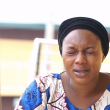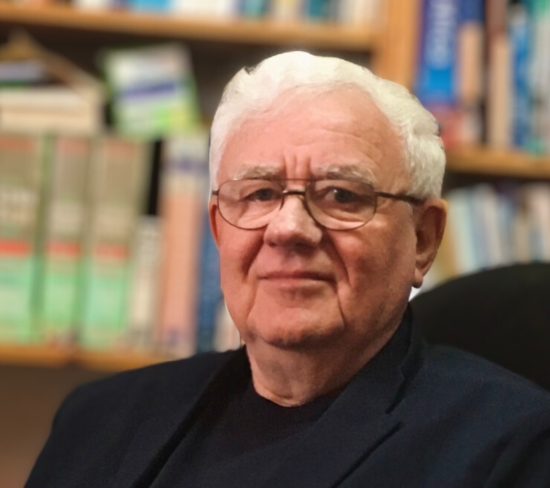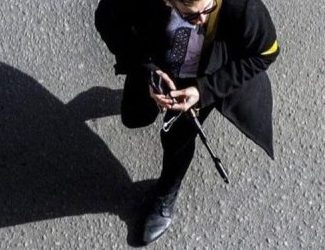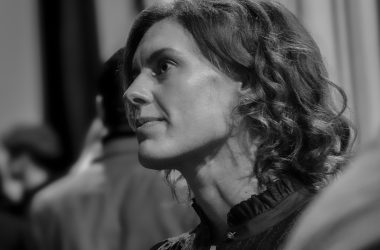A world-leading scholar on the socio-psychological aspects underlying intractable conflicts, Daniel Bar-Tal is Professor Emeritus at the School of Education at Tel Aviv University. He has focussed on the Israel-Palestine dispute for several decades, working to understand the ‘ethos’ that shape the way societies view war and violence that mark their lives.
Bar-Tal was the founding director of the Walter Lebach Research Institute for Jewish-Arab Coexistence through Education. He is the author of 25 books and more than 250 papers and book chapters. For this edition, which focuses on wars and conflict, Bar-Tal speaks on the need for greater comprehension of the opposing points of view on both sides of the conflict. Excerpts from the interview, which has been edited for clarity and brevity.
What’s your perspective of what’s happening in the Israel and Palestinian conflict right now?
There is a war but it’s complicated. The story between Israel and Gaza Strip, which is one side of the situation, and has gone on for I think 177 days since the 7th of October and at the moment I would say it’s maybe a tie, where Gaza is destroyed almost completely. Nobody knows what will happen, there is a tremendous disagreement between the United States and Israel. Between Biden and Nita Netanyahu, so at the moment there are signs of proposal negotiations which are going on in Cairo, but nobody knows what their status is exactly. Palestinians, Hamas and Israel are trying to achieve their goals so there’s a lot of uncertainty.
There is a war but it’s complicated
In your work Israel and Palestinian conflict: A cognitive analysis you speak of ‘belief acquisition and all alteration’. You argue that individuals might freeze their existing beliefs due to factors like information scarcity. Could you explain this further — how can this be used to gain a deeper understanding of the contrasting viewpoints on the Gaza and Israel situation?
Each society has ethos, which means some kind of orientation which guides the society. For example, in the United States, Americans are guided by the ethos of capitalism and as well as ethos of democracy. I claim that every society living in the situation of violent conflict for a long time, develops ethos of conflict which means that society can have a number of ethos’s. Society can have in addition to the ones that are engaged in a protracted, violent conflict. I also claim that the societies that live past 25 years since the conditions of conflict develop a total culture of conflict. Ethos of conflict has at least eight themes that are related with each other and together they consist of a kind of ideology of a society.
My conception says that in intractable conflict which is a case of our conflict between Jews and Palestinians in our region, which has gone on for more than 100 years and active since 1948, the sides to the conflict develop ethos of conflict and develop a culture of conflict the content that really fits the culture and has a number of themes or ideas. Each side is really occurring to them for example, glorification of oneself or the feeling of being a victim.
Now when the war is going on, about 30,000 Palestinians were killed and about 78,000 were wounded and in addition about 8,000 are buried under the rubble, It’s a very brutal war and each side are adhering very much to the ethos of each one. Israeli’s are focusing on October 7 2023 when the carnage was taking place, Palestinians don’t talk about it. So, as you can see there is not much in common and they are not really in the way of negotiating really, because each side has a traumatic experience with the war and there’s the trauma is going on.
I wanted your thoughts on two recent events and how they might be explained in terms of the social psychological perspectives. The first is the attack on the World Central Kitchen convoy. Investigations and media reports suggest that Israeli soldiers made a series of errors that led to the killing of aid workers. Can you shed light on what might have been at play there?
Israel explained that the killings were a mistake, which means that officers on lower levels did not know and did not want to know about the coordination’s that were going on with the guard to the cars that were moving. But in war, mistakes happen and it’s not the first time in this war that has happened. The killing of about 100 Palestinians who were trying to interfere with the convoy’s that were transporting food was also so-called mistake. So, a lot of people are killed — even Israelis by Israelis. So it’s part of the war and it happens and as we know mostly same mistakes were on the Israeli side, which is the most powerful and active side in the war.
The second event is the October 7 Hamas attacks. A recent Al Jazeera investigation shows that many of the claims of human rights atrocities such as beheading of babies, widespread rape etc repeated by Israeli politicians — indeed many others around the world — were untrue. Could you help frame this in terms of conflict scholarship? What is happening here?
Both societies have experienced terrible trauma. Obviously, Jews experienced the Holocaust and for the Palestinians, the event that is still going on is a reminder of what they call a disaster in Nakba in 1948 where 700,000 Palestinian were expelled out of Palestine — they destroyed about 450 villages, so they claim that it’s a continuation of the traumas of they had in 1948. So, for both societies, from their perspectives, I feel it’s a continuation of something that was in the past.
You don’t hear the stories of Palestinians
At the moment each of them is at the height of ethos of conflict. For some time, it was very moderated, especially in the 1990’s when the process of peace was going on. But at the moment we are again experiencing a terrible and rare escalation of the conflict, with the escalation of the ethos conflict and culture of conflict, so they are engulfing both societies.
How would you assess the global media’s coverage of the ongoing unrest? What are your thoughts on Israel’s decision to restrict access to foreign journalists?
It’s a common thing that was also done in the Vietnam War and the Iraq war- the government wants to have a control on the news that is coming out from the war and to control the journalists so they rely on reports of the army and the government.
Media in Israel is very much a self-censorship and censored, so obviously it adheres to the ‘glorify’ theme of ethos. You can see the story of the kidnapped and the story of the soldiers who had fallen in Gaza, but you don’t see the destruction going on in Gaza and you don’t hear the stories of Palestinians.
In each war, especially the ones that are going on now, for example, the Ukrainian and Russian war, it’s very important to get support. Israelis try to get support of the international community.
You have pointed out that both Israelis and Palestinians firmly believe in the truth and objectivity of their respective beliefs, and conversely, they view the other groups beliefs as incorrect or distorted. What do you think are necessary for these opposing sides to understand and possibly accept each other’s perspectives and beliefs?
Where people are open minded and critical of what is going on, I assume that such a minority also exists on the Palestinian side where people see what is going on. But remember, it’s asymmetric conflict, it’s not symmetric. Conflict is asymmetric conflict, so Palestinians living 57 years under brutal occupation want liberation, they want end of the occupation.
Your social-psychological theory of intractable conflict provides explanations for the de-escalation and resolution of conflicts globally. You argue that for a society to avoid conflicts, it needs to develop a functional psychological repertoire of beliefs, attitudes, and emotions. How can this be implemented in societies to mitigate the risk of conflict escalation, as we are currently witnessing in Gaza and Israel?
During the conflict, but when there are signs of winning on both sides, to negotiate. There were attempts at the beginning of the 90’s, 2000 and 2008 in the long period of occupation where Israelis were negotiating with Palestinians, but at the moment both societies are in such a trauma so I can talk with you about it conceptually, but not practically.
You have also examined Palestinians’ sentiments towards the actions of Jews. Notably, you explained that Palestinians are primarily concerned with the treatment of the minority living in Israel and perceive a consistent violation of their human rights. What is your response to those who might deny or downplay the Palestinians’ allegations about their treatment by the Israelis?
Nobody can. It’s absolutely clear that there are severe violations of human rights and international law. The Justice Court in The Hague will have to decide whether Israel is breaching international law and violating human rights.
There are severe violations of human rights and international law
In your book Sinking into the Honey trap: The case of the Israeli-Palestinian conflict, you describe mechanisms that enable Israelis to live in a way that exacerbates the conflict with Palestinians and overlook reality. Considering the current situation, and the increasing amount of footage showing the atrocities faced by Palestinians, could you share thoughts on how this situation has changed, if it has?
People don’t know what is going on 60 kilometres from Tel Aviv, and you have to realise that there was a marked green line which separated West Bank from the State of Israel. This green line was erased in 1972 by the Labour minister which means when you look at the map of Israel, there is no separation between occupied territories and between state of Israel. Israelis are not aware and the young generation don’t know that the territories are really occupied. But what is going on now? Especially in the mind of Israelis when we withdrew from the Gaza Strip and it became liberated- It was not because there was siege on Gaza, Israel controlled every entrance and every exit from Gaza. With Gaza, the situation changed dramatically and we hear a lot of violent resistance in West Bank. So, it’s a kind of a recognition that war is going on and resistance is going on. So, since October 7th, the minds of Israelis are changing.
You highlight a range of socialisation agents, cultural products, and societal institutions (such as schools) that contribute to the dissemination and internalisation of certain ‘pro-conflict’ narratives and attitudes in society members. How important a role do you think the news media plays in instilling these beliefs, and what can journalists do to help?
In Israeli media (except for a few channels) you can find information about what is going on in Israel and in the occupied area. The rest of the media is very much under influence of the situation. The government tries to control the media.
You can see it when you turn to CNN, BBC etc, but Israelis, don’t try that much to look at the damage that was done to Palestinians. There are four channels in Israel and one is in the service of Netanyahu, so I don’t count it because it’s pure propaganda.
Is there anything that journalists can do that you think or improvements that can be made to change what you’ve just said this situation?
I believe it’s a matter of pressure, it’s a dependence on the journalists on getting information from the army and from the government so they moderate their reports in the favour of ethos of conflict. There are brave journalists that write and we are not in the situation of Russia or even India where journalists are completely blind.
What does the future of Palestine and Israel look like to you?
I don’t know really, because in order to have a two-state solution, there is a need to move about 70,000 Jewish settlers from inside of the West Bank. It’s a tremendous number. So I don’t know how it can be done. Another solution that is going on is a one state solution, but here most of the Jews reject it and do not want to give civil rights to Palestinians. They want a next West Bank without giving civil rights, which will be apartheid. Apartheid is not acceptable in this century, so I don’t know what will happen. It’s very hard to know and I would not predict a situation now.








